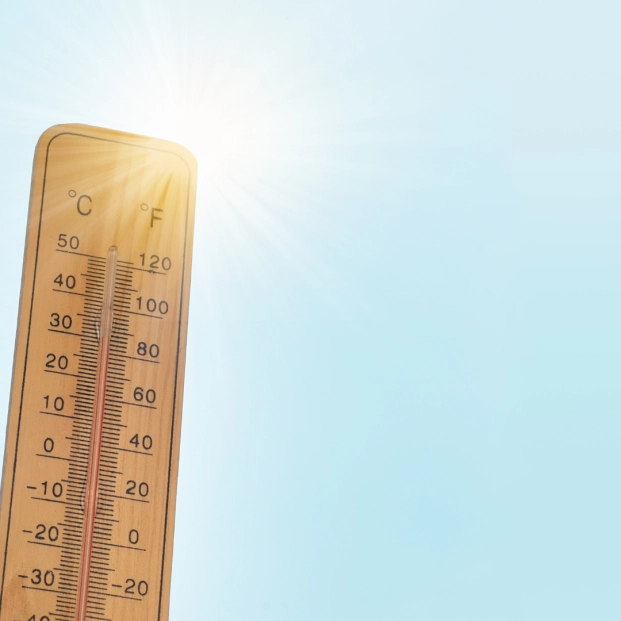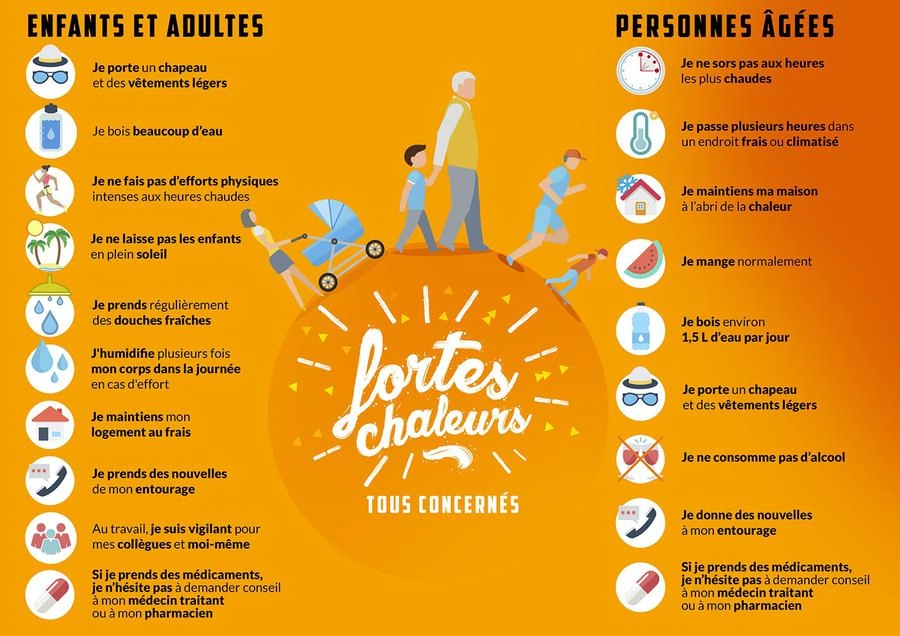Precautions during very hot weather
Very hot weather and heatwaves can have implications for your health heatstroke, dehydration, the risks vary depending on your age and the activities you do.
What are the risks associated with heatwaves?
Very hot weather can have implications for your health.
The body reacts differently to very hot weather, depending on age.
In old age, the body perspires less and consequently has difficulty maintaining a temperature of 37°. This can cause a rise in body temperature leading to a risk of heat stroke (hyperthermia, where the temperature rises above 40° and consciousness is impaired).
In children and adults, the body perspires a lot to maintain the correct temperature, but this leads to a loss of water, risking dehydration.
In addition, pregnancy, some diseases and taking certain medicines can, in very hot weather, be harmful to your health. These problems should be discussed with your usual doctor and your chemist before summer begins.
There are some simple steps you can take to help avoid problems, particularly at the beginning of a heatwave. It is important to prepare before you notice the first signs that your body is suffering, even if these signs seem insignificant.
What to do during very hot weather?
Protect yourself during the hottest hours of the day.
- Avoid going out during the hottest hours of the day (11 am to 5 pm). If possible, try to take a siesta and relax in a cool place
- Avoid outdoor activities which require a lot of energy (gardening, DIY, etc.) and physical exertion
- Wear a hat and light, loose cotton clothing in pale colours
- Keep your home cool (close windows and shutters/blinds during the day, open them in the evening and at night if it is cooler)
- Hang a damp cloth in front of an open window
- If the indoor temperature is above 32°C, fans will not counteract the oppressive heat because they will move the air around without cooling it and speed up dehydration
- If possible, hose down your terrace and balcony in the evening, after sunset, particularly those which face west
- Check that your fridge is working correctly
Keep yourself cool
- Take regular cool (but not cold) showers or baths
- Spray yourself with a water spray or use a wet flannel to cool your body several times a day
- Spend 2–3 hours a day in a cool place (such as department stores, cinemas and public places)
Drink and continue to eat
- Drink at least 1.5 litres of water every day
- Drink water regularly, do not wait until you are thirsty
- Help the elderly, children and babies to stay hydrated
- Avoid drinking alcohol, coffee, tea and fizzy or sugary drinks, as these can cause dehydration
- Make sure you eat enough; opt for cold food which contains a lot of water (fruit, raw vegetables, etc.)
- Keep away from sources of heat (e.g. ovens)
Seek advice from your doctor or chemist
- About any medicines you are taking, even those which are sold over the counter
- In the event of any unusual symptoms
Ask for help
- Regularly update your friends and family on how you are doing, and seek their help as soon as you need it
- If you feel unwell, or if someone else requires assistance, contact the Fire and Emergency Service by dialling 112
Related news

Que fait-on cette semaine à Monaco ?

It's summer sale time in Monaco!


